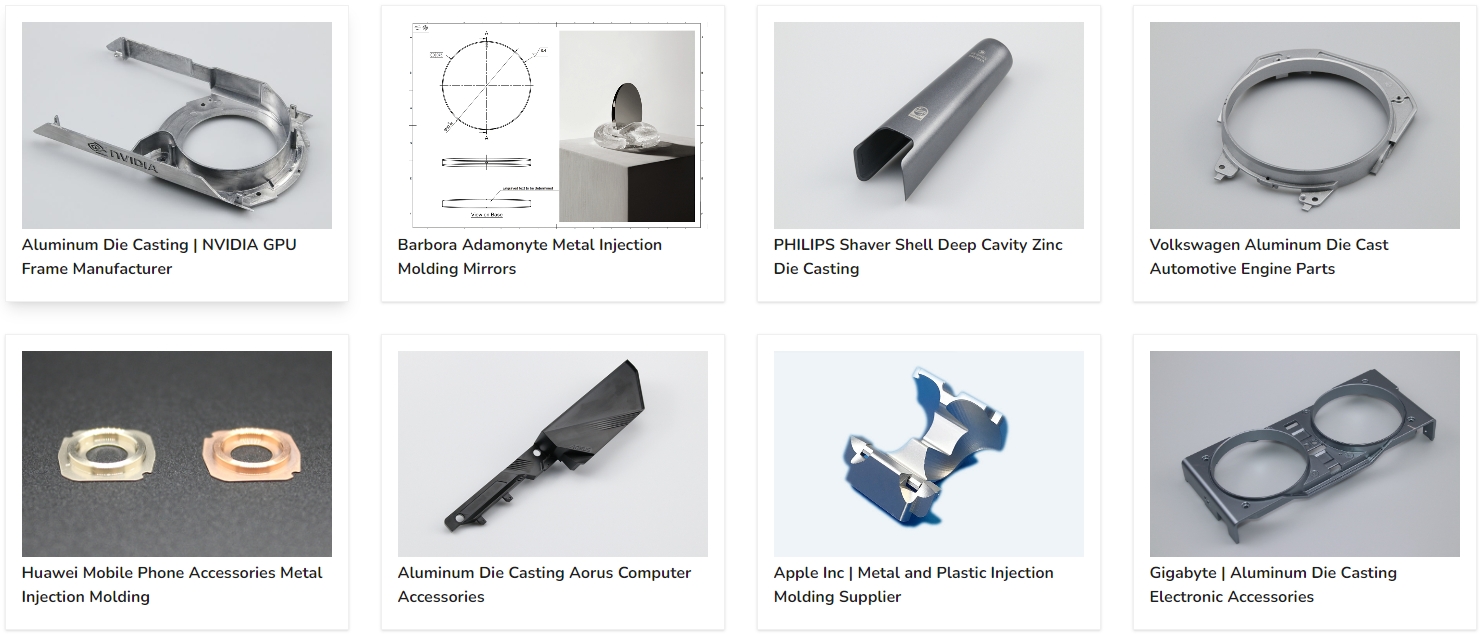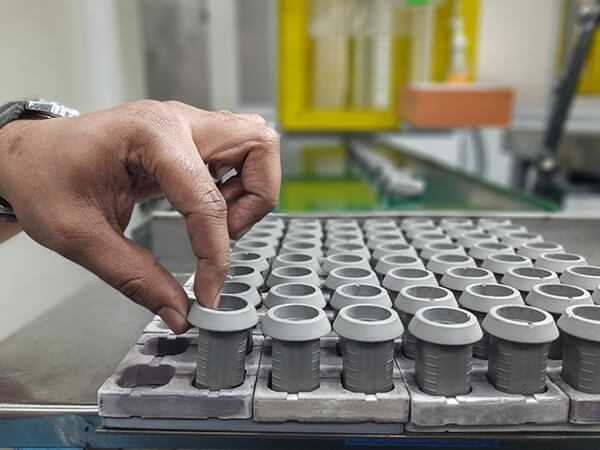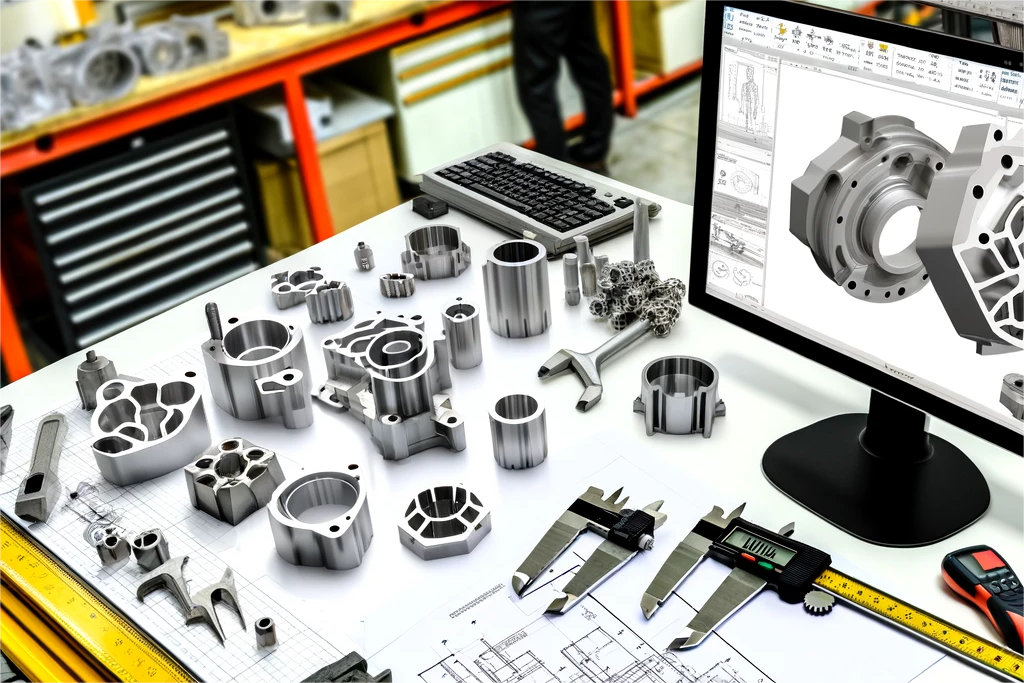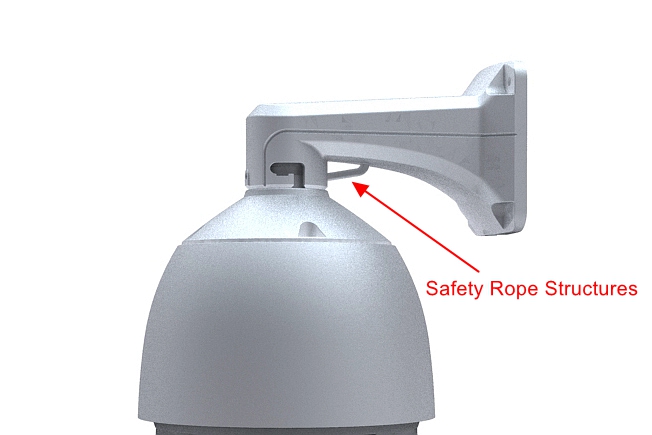How Does Neway Ensure the Quality of High-Demand Aluminum Die-Cast Parts?
Aluminum die casting is crucial in manufacturing, providing high-precision, high-strength components for many industries, including automotive, aerospace, electronics, and industrial equipment. The process involves injecting molten aluminum into a steel mold under high pressure, resulting in parts with excellent mechanical properties and intricate details. However, ensuring the quality of these parts is paramount, especially when they are in high demand and used in critical applications.
At Neway, we understand that our clients rely on us to deliver die-cast parts that meet and exceed industry standards. Our reputation for quality is built on a foundation of rigorous quality control processes, advanced technology, and a relentless commitment to continuous improvement. This blog will delve into the meticulous steps we take to ensure every aluminum die-cast part we produce upholds our high standards, providing insight into the methods and technologies we employ to maintain excellence in manufacturing.
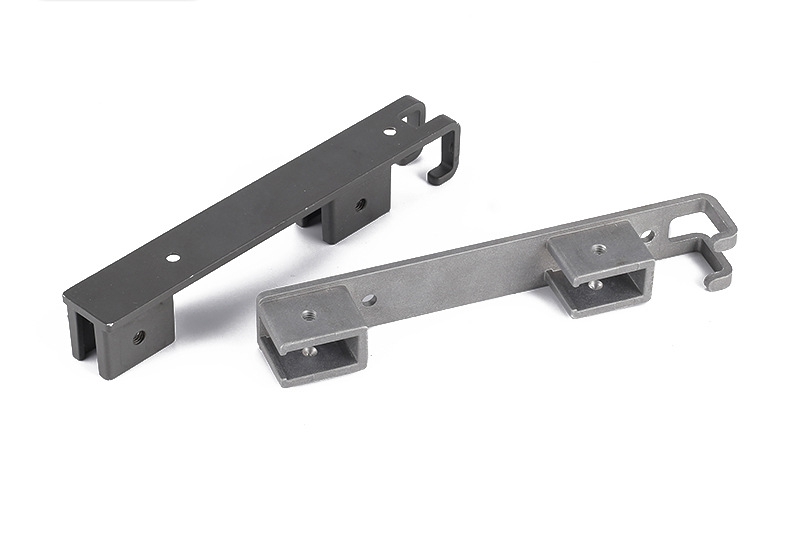
Rigorous Quality Control Processes
Ensuring the quality of aluminum die-cast parts starts with rigorous quality control processes. At Neway, we have implemented a multifaceted approach to maintain the highest standards of precision and reliability.
Dimensional Inspections
Maintaining tight tolerances is crucial in die casting, especially for parts used in high-performance applications. At Neway, we use a range of precision measuring tools to verify the dimensions of each part:
Calipers and Micrometers: These tools are essential for measuring the dimensions of small features with high accuracy.
Coordinate Measuring Machines (CMM): CMMs provide highly accurate measurements of complex geometries. By using CMMs, we can ensure that every part meets the specified dimensional tolerances, typically up to ±0.005 inches (±0.127 mm).
By conducting thorough dimensional inspections, we ensure that each part conforms to the precise specifications required by our clients.
Material Testing
The properties of the aluminum alloy used in die casting are critical to the final product's performance. To ensure the highest quality, Neway performs extensive material testing:
Alloy Composition Verification: We analyze the chemical composition of the aluminum alloy to ensure it meets the required standards. This step is vital for achieving the desired mechanical properties and corrosion resistance.
Mechanical Property Testing: We conduct tests to measure tensile strength, hardness, and other mechanical properties. These tests confirm that the material can withstand the demands of its intended application.
Advanced Technology and Equipment
Neway's commitment to quality is reflected in our investment in state-of-the-art technology and equipment. Leveraging advanced machinery and real-time monitoring systems ensures that our aluminum die-cast parts meet the highest standards of precision and consistency.
State-of-the-Art Machinery
Neway uses cutting-edge high-pressure die-casting machines to produce our aluminum parts. These machines offer several benefits:
Precision and Consistency: Advanced die-casting machines can maintain tight tolerances and produce consistent results across large production runs.
High-Speed Production: Modern equipment allows for rapid cycle times, increasing productivity without compromising quality.
Complex Geometries: Our machinery can handle intricate designs and thin-walled sections, which are often challenging to achieve with other manufacturing methods.
Investing in the latest machinery ensures we can meet our clients' demanding specifications and high volumes.
Real-Time Process Monitoring
Quality control at Neway extends beyond the initial setup and into every moment of production. Real-time process monitoring is a crucial aspect of our approach:
Sensors and Monitoring Systems: Our die-casting machines have sensors that continuously monitor critical parameters such as temperature, pressure, and injection speed.
Immediate Adjustments: By monitoring these parameters in real-time, our operators can make immediate adjustments to ensure optimal conditions are maintained throughout the casting process.
Data Logging and Analysis: The data collected from these sensors is logged and analyzed to identify trends and areas for improvement. This continuous feedback loop helps us refine our processes and prevent defects before they occur.
Stringent Process Controls
To ensure the quality of our aluminum die-cast parts, Neway implements stringent process controls at every stage of production. These controls are designed to maintain consistency, precision, and reliability, ensuring that each part meets the exacting standards required by our clients.
Standard Operating Procedures (SOPs)
Standard Operating Procedures (SOPs) form the backbone of our process controls. At Neway, we have developed detailed SOPs for every stage of the die-casting process:
Preparation: SOPs cover the preparation of molds, including pre-heating and application of lubricants to ensure proper material flow and reduce wear on the molds.
Casting: Procedures for the actual die-casting process include specific guidelines for temperature control, injection pressure, and cycle times to ensure optimal conditions for each part.
Post-Casting Operations: SOPs also cover trimming, machining, and finishing operations, ensuring that each part is processed consistently and meets the required specifications.
Adhering to these SOPs ensures that every manufacturing process is performed consistently and to the highest standards.
Employee Training and Certification
The skills and knowledge of our workforce are critical to maintaining high-quality production standards. Neway invests heavily in employee training and certification programs:
Continuous Training: All employees undergo regular training to stay updated on the latest techniques, technologies, and industry best practices. It includes both classroom instruction and hands-on training with our advanced machinery.
Certification Programs: We have implemented certification programs for machine operators, quality inspectors, and other key personnel. These programs ensure that our staff has the necessary skills and knowledge to perform their duties effectively and maintain the highest quality standards.
Quality Culture: By fostering a quality and continuous improvement culture, we empower our employees to take ownership of their work and strive for excellence in every part they produce.
Non-Destructive Testing (NDT) Techniques
Ensuring aluminum die-cast parts' structural integrity and reliability is paramount, especially for high-demand applications. Neway employs advanced Non-Destructive Testing (NDT) techniques to detect potential defects without compromising the part's integrity. This approach allows us to maintain our products' high quality and safety standards.
X-Ray Inspection
One of the most effective NDT methods we use is X-ray inspection. This technique allows us to see inside the die-cast parts and identify internal defects that are not visible to the naked eye:
Detection of Internal Defects: X-ray inspection can reveal internal porosity, cracks, and other structural issues that could compromise the part's performance.
Ensuring Structural Integrity: By identifying these defects early, we can take corrective actions to ensure that only parts meeting our stringent quality criteria are delivered to our clients.
High Resolution: Modern X-ray systems provide high-resolution images, allowing for precise identification of even the most minor defects.
X-ray inspection is invaluable in our quality assurance process, ensuring that each part is structurally sound and meets the required specifications.
Ultrasonic Testing
Ultrasonic testing is another crucial NDT technique employed by Neway. This method uses high-frequency sound waves to detect flaws and measure material properties:
Wall Thickness Measurement: Ultrasonic testing accurately measures the thickness of the walls of die-cast parts, ensuring they meet design specifications and can withstand operational stresses.
Detection of Hidden Flaws: This technique can detect subsurface defects such as voids, inclusions, and delaminations, which could affect the part's durability and performance.
Non-Invasive: Ultrasonic testing is non-invasive and does not damage the part, making it ideal for quality control in high-demand applications.
Post-processing and Final Inspections
After the initial die-casting process, Neway implements a series of post-processing and final inspection steps to ensure each aluminum die-cast part meets the highest quality standards. These steps are crucial for refining the parts to their final specifications and verifying their suitability for their intended applications.
Machining and Finishing
Post-casting processes are essential to achieve the final dimensions, surface finish, and functionality required by our clients:
Precision Machining: Once the parts are cast, they require additional machining to meet precise dimensional tolerances. CNC machining is commonly used to achieve high accuracy and fine details that cannot be attained through die casting alone.
Surface Finishing: Depending on the application, parts may undergo various surface finishing processes, such as polishing, anodizing, or powder coating. These finishes not only enhance the appearance of the parts but also improve their corrosion resistance and durability.
Deburring and Trimming: Excess material (flash) and burrs from the casting process are removed to ensure smooth edges and surfaces. This step is crucial for parts that will undergo further assembly or need to meet strict safety standards.
Through these post-processing steps, we ensure that every part meets and exceeds our client’s expectations in terms of performance and aesthetics.
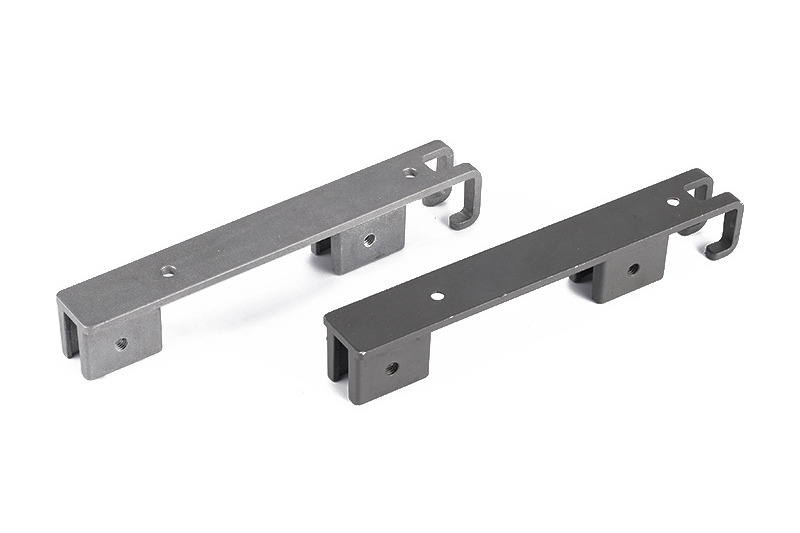
Final Quality Inspections
Before any part leaves our facility, it undergoes comprehensive final inspections to verify its quality and compliance with specifications:
Visual Inspection: Trained inspectors thoroughly examine each part to check for surface defects, inconsistencies, or any visible flaws that could impact the part’s performance.
Dimensional Verification: We confirm that all critical dimensions meet the specified tolerances using precision measuring tools. It includes checking hole diameters, wall thicknesses, and overall part geometry.
Functional Testing: We conduct tests for parts that must meet specific functional criteria to ensure they perform as required. Depending on the application, it might include pressure testing, leak testing, or operational simulations.
Continuous Improvement and Feedback Loops
At Neway, quality is not a static goal but a dynamic, continuous improvement process. We are committed to refining our processes, incorporating feedback, and leveraging internal reviews to consistently deliver the highest quality aluminum die-cast parts.
Customer Feedback Integration
Customer feedback is invaluable in our quest for continuous improvement. We actively seek and incorporate feedback from our clients to enhance our processes and products:
Regular Feedback Sessions: We hold client meetings to gather their insights and suggestions. These sessions help us understand their needs and identify areas for improvement.
Feedback Analysis: Customer feedback is systematically analyzed to identify common issues or areas for enhancement. We can implement targeted improvements by understanding the root causes of any concerns.
Actionable Changes: Based on the feedback, we make practical changes to our processes, materials, or techniques. It might include adjusting manufacturing parameters, refining quality control procedures, or introducing new technologies.
Integrating customer feedback into our continuous improvement cycle ensures that our products meet and exceed client expectations.
Internal Audits and Reviews
Internal audits and reviews are critical components of our quality assurance framework. These processes help us maintain high standards and drive continuous improvement:
Regular Audits: We conduct internal audits of our production processes, quality control procedures, and equipment. These audits help identify deviations from our standards and ensure compliance with industry best practices.
Performance Metrics: Key performance indicators (KPIs) monitor various aspects of our operations, including defect rates, production efficiency, and customer satisfaction. By tracking these metrics, we can identify trends and areas for improvement.
Root Cause Analysis: When issues are identified, we analyze the root cause to understand the underlying factors. This analysis helps us implement practical corrective actions and prevent recurrence.
Continuous Training: Based on audit findings and reviews, we update our training programs to address any identified gaps. Ensuring our staff is well-trained and knowledgeable about the latest techniques and standards is crucial for maintaining high-quality production.
